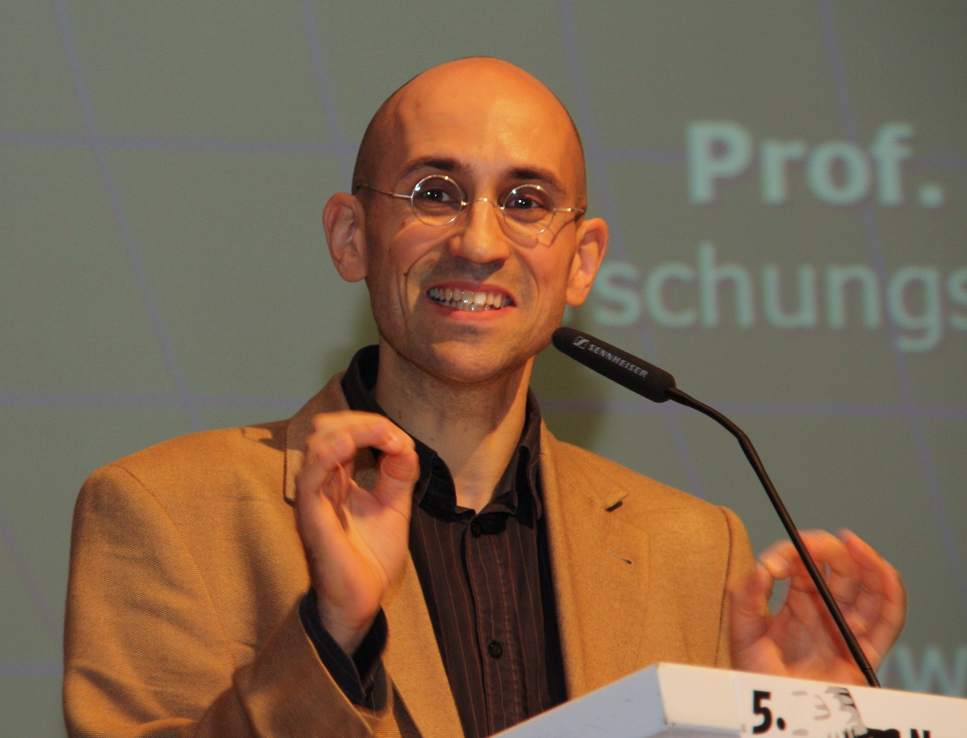
|
Research Unit Sustainability and Climate PolicyProf. Dr. Dr. Felix Ekardt, LL.M., M.A. |

|

|
Research Unit Sustainability and Climate PolicyProf. Dr. Dr. Felix Ekardt, LL.M., M.A. |

|
Recent
Publications and Speeches
Newsletter
The CBD as well as (national and transnational) human rights contain an obligation to halt biodiversity loss since 1993 at the latest, which has been continuously violated ever since. Governments can also be sued on this basis. We show this in a new international paper: here and in our biodiv lawsuit against the German (and indirectly the EU) legislator: here.
Even with zero fossil fuels and greatly reduced animal husbandry, residual emissions remain that must be compensated - even if sufficiency can make this amount of emissions smaller than the IPCC assumes. This requires above all the regulation of forests and peatlands (which are also central to biodiversity protection). Here, economic instruments and regulatory law relate to each other differently than they often do. Three international articles explore this - on forests, on peatlands and on the very problematic large-scale BECCSand other kinds of geoengineering.
German and EU climate policy is contrary to international law and constitutional human rights. Even the unambitious targets themselves are illegal. More on this in our new legal analysis, including critical perspectives on IPCC AR6 here. In April 2021, we won a groundbreaking lawsuit at the German Constitutional Court. See on this in Nature Climate Change, in The Environment and Sustainability.
The existing legal framework on P is strongly characterized by detailed command-and-control provisions and thus suffers from governance problems such as enforcement deficits, rebound and shifting effects. Our new paper focuses on how these challenges could be addressed by economic instruments. The article highlights not only the impact of the instruments on P management, but also on adjacent environmental areas. We pay particular attention to the governance effects on reaching international binding climate and biodiv goals: here.
The production of animal food products is (besides fossil fuels) one of the most important noxae with regard to many of the environmental problems, such as climate change, biodiversity loss or globally disrupted nutrient cycles. This paper provides a qualitative governance analysis of which regulatory options there are to align livestock farming with the legally binding environmental objectives, in particular the Paris Agreement and the Convention on Biological Diversity: here.

Felix Ekardt is Director of the Research Unit Sustainability and Climate Policy in Leipzig which he founded in 2009. Since 2009, he is also Professor for Public Law and Legal Philosophy at the Rostock University (Faculty of Law) as well as member of the Leibniz Science Campus on Phosphorus Research - as well as member of the Interdisciplinary Faculty (Department Knowledge-Culture-Transformation). His scientific focus as a lawyer, philosopher and sociologist lies in issues around human science sustainability studies. More specifically issues of transformation and social learning processes, justice (particularly human rights), governance and law (sustainability law/ environmental law and sustainability politics/ environmental politics in terms of developing policy instruments on international, European, national and regional level).
Besides fundamental research and policy consulting (see also “Publications” and “Projects”) for public and non-profit clients such as governments and foundations in various third-party funded projects, Felix Ekardt is member of various expert commissions and gives some 60 lectures nationally and internationally every year. This included among others since 2007 World Congress of Philosophy of Law and Social Philosophy, World Congress of law sociologists, World Congress on Fertilizers, World Congress on Green Tax, World Phosphorus Workshop, conferences of political scientists, economists, geographers etc. He is editor of some monograph series, inter alia "environmental humanities: transformation, governance, ethics, law" with Springer Nature (since autumn 2018) and "contributions to social science sustainability research" with Metropolis Publishing. Furthermore, he is one of the editors of various scientific journals, namely Ecological Civilization (MDPI), Zeitschrift für Neues Energierecht (DFV) and Nature Conservation (Pensoft). He regularly publishes in German national newspapers and serves as interviewee for broadcast.
Felix Ekardt initiated and prepared (since 2000) the successful trial on climate policy before the German Federal Constitutional Court (verdict of spring 2021). He occasionally gives guest lectures at Leipzig University (faculty of philosophy) and since 2008 at various Chinese universities in Bejijng and Tianjin. Felix Ekardt was awarded with German IQ Prize 2018, with Luther-Medaille and the Lennart Bernadotte Prize for his doctoral thesis and was one of five “Junior Scientists of the Year 2007” of German Hochschulverband and ZEIT. He serves as a reviewer for various international journals such as Science, Sustainability, International Environmental Agreements, Science of the Total Environment, Sustainability, Agronomy, and The Age of Human Rights Journal.
Felix Ekardt passed two law exams, and additional master degrees in sociology, Religious Studies, European law (after studying in Berlin, Marburg and Leipzig 1991-2002). He was research assistant at the University of Aberdeen (Scotland) 1996, legal intern in Leipzig 1997-1999 and associate of a law firm specialized in environmental law 1995-2003. He completed his first doctoral studies at Halle University on economic, cultural, religious historic causes of non-sustainability 2000 (in law). He completed his second doctoral studies at Leipzig University on cost-benefit analysis 2018 (in philosophy). He submitted his habilitation 2002/2003 at Rostock University on issues of governance, transformation and justice. 2002-2008, he was professor on public law with a focus on German, European and international environmental law at Bremen University (Faculty of Law).